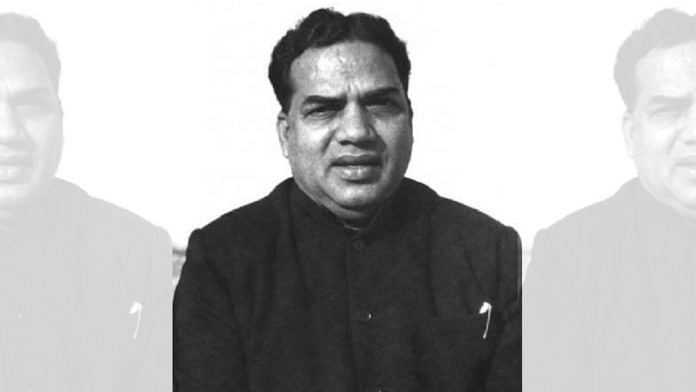A Communist revolutionary, follower of M.K. Gandhi, and Dalit sympathiser, Avilliath Kutteri Gopalan had his fingers dipped deep into the political pie. But what made people talk about the ’50s leader was a love affair — ‘AKG’ was labelled a ‘paedophile’ in 2018.
His autobiography, Ente Jeevitha Kadha, had gone out of print only to be revived by Congress MLA V.T. Balram, who insinuated that AKG was a child abuser by pointing out the age difference between AKG and his wife Susheela Gopalan. Balram alleged that AKG’s relationship with Susheela began when she was only 12 years old. The Communist leader was almost double her age at that time.
Opponents dismissed the controversial claims made by Balram and went on to argue that AKG was separated from his first spouse when he met Susheela in 1943 and that the two got married nine years later.
The publisher of AKG’s autobiography, Chintha Publishers, went for a reprint as the entire stock of the book’s 12th edition had been sold out after the controversy. It had such wide national ramifications that the publishers even planned an English translation of the autobiography. But let’s draw the curtain beyond the drama.
Also read: Why liberals are wary of Pinarayi Vijayan-led LDF’s return in Kerala
Political, social imprint
A.K. Gopalan was a well-known Indian Communist politician and revolutionary. He was one of the 16 members of the Communist Party of India elected to the first Lok Sabha in 1952 and later became a founding member of the Communist Party of India (Marxist).
Born on 1 October 1904 in Kerala, AKG was influenced by his father and brother who were active in the community and took an interest in social reform and education. Even though Gopalan did not complete his formal education, he started out as a primary school teacher during India’s independence movement and actively took part in the Khilafat Movement, which further prompted him to work as a social and political activist.
AKG was a widely-known personality across the political spectrum and acknowledged as an exemplary parliamentarian even by those who staunchly opposed his Communist ideology. He focussed not merely on freedom from British rule but all forms of oppression, including economic and social injustices. Wherever the caste system was strongly present, A.K. Gopalan took on the task of voicing the cries of the oppressed castes and the upliftment of Dalits.
Temple entry agitation
A.K. Gopalan famously led a Dalit march on a public road at Kandoth near Payyannoor. Traditionally, Dalits were barred from walking on that road because it was near a temple. As he led the procession, a mob rushed forward and beat up AKG. In his autobiography In the Cause of the People, he recalled, “This was the first physical attack I had faced in my political life. But there was the satisfaction that the Kandoth assault found a prominent place in news coverage. It was the best propaganda for the Guruvayoor temple entry satyagraha. The incident opened the eyes of the public. District Board authorities…put up a board that all had the right to use the road. People began to think of the injustice of untouchability.”
Also read: Mihir Sen, Asia’s first English Channel swimmer in 1958 who was targeted by Jyoti Basu
Life in prison
AKG first went to jail in 1930 when he was arrested for his participation in the Salt Satyagraha led by M.K. Gandhi. It was here that he was introduced to Communism. After that, he became a member of the Congress Socialist Party and later, a member of the CPI that took shape in Kerala in 1939.
He was frequently in and out of jail and once also made an escape in 1942, only to be recaptured shortly after the end of the Second World War in 1945. On the occasion of Independence Day, the Madras government released all political prisoners, but AKG wasn’t one of them. He was released a few weeks later.
In his autobiography, Gopalan remembers, “Memories of the Congress from 1927 passed through my mind. I felt proud of the role I had played in the Congress movement in Kerala. A man who was secretary of the Kerala Congress and its president for some time and member of the AICC for a long time was celebrating August 15 in jail!”
Gopalan’s life through movies and books
Prominent director Shaji N. Karun made a biopic on AKG titled Athijeevanathinte Kanalvazhikal in 2008. The film used a part-documentary, part-fiction format. Another feature film came out in 2014 titled Vasanthathinte Kanal Vazhikalil, where famous actor Baiju played the character of Gopalan.
AKG’s autobiography has been translated into many languages. Some of his other works include For Land, Around the World, Work in Parliament, and Collected Speeches. He stood for what he believed in, and once out of jail, he remained true to his vision and worked for the cause of the people.
A previous version of the headline called Gopalan CPI founder and a Dalit leader. We regret the error.
(Edited by Humra Laeeq)



